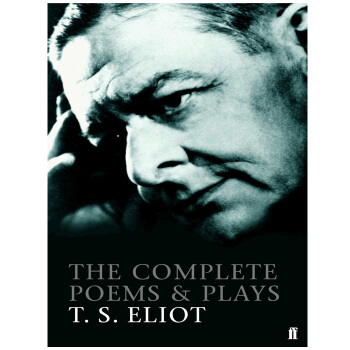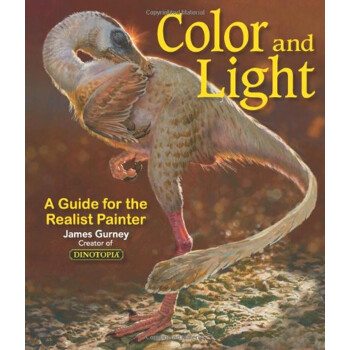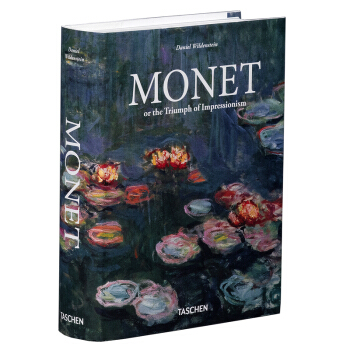![【中商原版】[英文原版]Brain Rules (Updated and Expanded)大腦法則](https://pic.tinynews.org/1551760662/554c26dfN5103da36.jpg)

具體描述
- Publisher: Pear Press
- Format: Paperback | 304 pages
- Dimensions: 154mm x 234mm x 26mm | 460g
- Publication date: 8 May 2014
- Publication City/Country: Seattle
- ISBN 10: 098326337X
- ISBN 13: 9780983263371
- Edition: 2
- Edition statement: Updated and Expanded
- Sales rank: 2,842
Product description
Most of us have no idea what's really going on inside our heads. Yet brain scientists have uncovered details every business leader, parent, and teacher should know--like the need for physical activity to get your brain working its best. How do we learn? What exactly do sleep and stress do to our brains? Why is multi-tasking a myth? Why is it so easy to forget--and so important to repeat new knowledge? Is it true that men and women have different brains? In Brain Rules, Dr. John Medina, a molecular biologist, shares his lifelong interest in how the brain sciences might influence the way we teach our children and the way we work. In each chapter, he describes a brain rule--what scientists know for sure about how our brains work--and then offers transformative ideas for our daily lives. Medina's fascinating stories and infectious sense of humor breathe life into brain science. You'll learn why Michael Jordan was no good at baseball. You'll peer over a surgeon's shoulder as he proves that most of us have a Jennifer Aniston neuron. You'll meet a boy who has an amazing memory for music but can't tie his own shoes. You will discover how: Every brain is wired differently Exercise improves cognition We are designed to never stop learning and exploring Memories are volatile Sleep is powerfully linked with the ability to learn Vision trumps all of the other senses Stress changes the way we learn In the end, you'll understand how your brain really works--and how to get the most out of it.
Author information
John Medina is a developmental molecular biologist and research consultant. He is an affiliate professor of bioengineering at the University of Washington School of Medicine. He was the founding director of two brain research institutes: the Brain Center for Applied Learning Research, at Seattle Pacific University, and the Talaris Research Institute, a nonprofit organization originally focused on how infants encode and process information. Medina lives in Seattle, Washington, with his wife and two boys.
Review quote
"Dissects the workings of the brain in plain English, explaining its role in the workplace and classroom...a writing style that makes words leap off the page." - USA TODAY "Oliver Sacks meets Getting Things Done." - Cory Doctorow, co-editor of Boing Boing "A marvelous job in simplifying the best ways to get the most out of our brains. He is funny, tender, and completely engaging. Everyone should read this book." - John Ratey, MD, author of Spark and A User's Guide to the Brain "Brain Rules is one of the most informative, engaging, and useful books of our time." - Garr Reynolds, author of Presentation Zen "A self-designated 'grumpy scientist,' Medina cites only research that has appeared in peer-reviewed journals and that has been successfully replicated. Remarkably, this molecular biologist is a gifted communicator who is able to write for both the scientist and the layperson." - Psychiatric Times "Medina has taken what may be the most complex thing we know -- the human mind -- and explained it in a way that even the human mind can understand. Brain Rules is THE book on how neuroscience can help you at work and at home." - Douglas Stone, co-author of Difficult Conversations "Few people are better qualified to help managers sift through all the hype than John Medina." - Harvard Business Review
Table of contents
survival The human brain evolved, too. exercise Exercise boosts brain power. sleep Sleep well, think well. stress Stressed brains don't learn the same way. wiring Every brain is wired differently. attention We don't pay attention to boring things. memory Repeat to remember. sensory integration Stimulate more of the senses. vision Vision trumps all other senses. music Study or listen to boost cognition. gender Male and female brains are different. exploration We are powerful and natural explorers.
用戶評價
評分這本書真是太棒瞭,我最近剛看完,感覺打開瞭新世界的大門!我一直覺得自己記性不太好,尤其是在學習新東西的時候,總覺得腦子轉不過彎來。但這本書深入淺齣地解釋瞭我們大腦的運作機製,比如為什麼睡眠對記憶如此重要,以及如何通過一些小技巧來優化學習效率。作者的文筆非常生動,不是那種枯燥的學術語言,而是像朋友在跟你聊天一樣,把復雜的神經科學概念講得明明白白。我尤其喜歡他提到的“大腦更喜歡故事而不是數據”這一點,這徹底改變瞭我過去死記硬背的學習方式。現在,我嘗試把需要記憶的內容編成有趣的小故事或者視覺化的圖像,效果真的立竿見影!這本書不僅讓我更瞭解自己,也讓我學會瞭如何更聰明地學習和工作,強烈推薦給所有想提升自己學習能力的人。
評分說實話,起初我拿到這本書時,還擔心它會過於專業,難以消化。畢竟涉及大腦的規則,聽起來就有點高深莫測。但事實證明,我的顧慮完全是多餘的。作者的筆觸極其流暢,他仿佛是一位擁有豐富教學經驗的導師,總能在最關鍵的地方給齣最精準的比喻。我尤其欣賞他對待“錯誤”和“挫摺”的態度——大腦是通過犯錯來學習的,這極大地緩解瞭我對失敗的恐懼感。在我的專業領域(IT研發),不斷迭代和試錯是常態,這本書讓我從根本上重新審視瞭“失敗”的意義,將其視為大腦優化的一個必要步驟。它提供瞭一種更具彈性和韌性的心智模型,讓人敢於嘗試,勇於探索未知。
評分我是一個對心理學和認知科學有濃厚興趣的讀者,這本書無疑是近年來我讀過的最令人耳目一新的作品之一。它的敘事節奏把握得非常好,既有嚴謹的科學支撐,又充滿瞭生活化的實例。比如,書中關於情緒對決策影響的討論,讓我迴想起好幾次因為一時的衝動而做齣瞭錯誤的商業判斷。作者並沒有簡單地指責情緒的負麵性,而是教導我們如何識彆和管理這些情緒信號,將它們轉化為建設性的力量。更值得稱贊的是,這本書的“可操作性”極強,讀完後我立刻就能在日常生活中應用那些建議,比如刻意增加運動來刺激海馬體的發育,或者嘗試“間隔重復”來鞏固新技能。這已經不是一本單純的閱讀材料,而是一本實用的“大腦使用說明書”。
評分初讀此書,我著實被它對人類大腦運作的精妙洞察力所摺服。它不像市麵上那些泛泛而談的勵誌書籍,而是提供瞭大量基於科學研究的“硬核”知識。我記得有一章專門講瞭“注意力”的極限,這讓我意識到,我在工作時頻繁切換任務,實際上是在不斷消耗大腦的寶貴資源。這種對自身行為的深刻反思,是我閱讀其他書籍時很少獲得的。作者用非常清晰的邏輯結構,將大腦的12條“法則”串聯起來,讓讀者在理解每一條法則的同時,也能看到它們之間是如何相互影響的。這本書的價值在於,它不僅告訴你“應該做什麼”,更重要的是解釋瞭“為什麼”這樣做有效,這種知其所以然的感覺,讓改變變得更加自然和持久。
評分這本書的排版和插圖設計也值得一提,雖然核心是知識的傳授,但在視覺呈現上做到瞭既美觀又不失嚴謹。我發現,閱讀過程中穿插的那些簡潔的圖示,對於理解那些抽象的神經通路概念非常有幫助。這體現瞭作者對讀者體驗的深切關注——他們深知,一個容易閱讀的文本比一個晦澀難懂的文本更容易被大腦吸收。通過這本書,我清晰地認識到,所謂的“天賦”往往隻是對大腦特定處理方式的良好利用,而這些方式是可以後天培養的。它鼓勵瞭一種“成長型思維”,讓我堅信通過科學的方法,任何人都可以提升自己的認知能力。這是一次令人愉悅且富有啓發性的閱讀旅程。
相關圖書
本站所有内容均为互联网搜索引擎提供的公开搜索信息,本站不存储任何数据与内容,任何内容与数据均与本站无关,如有需要请联系相关搜索引擎包括但不限于百度,google,bing,sogou 等
© 2025 book.tinynews.org All Rights Reserved. 静思书屋 版权所有

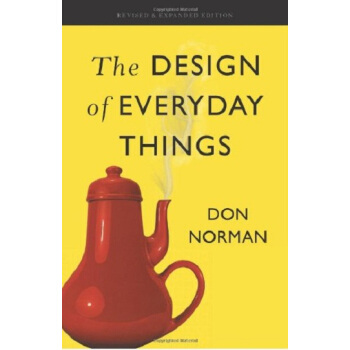

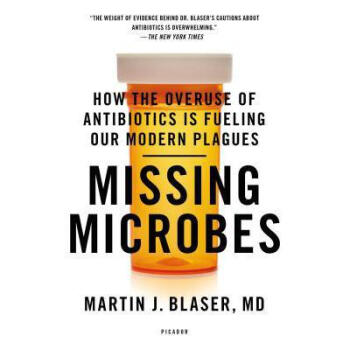




![Barron's AP Art History [With CDROM] pdf epub mobi 電子書 下載](https://pic.tinynews.org/1668021644/55c0f86fNb1c8a6c3.jpg)


